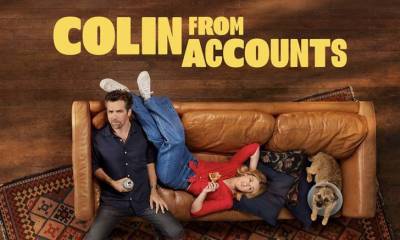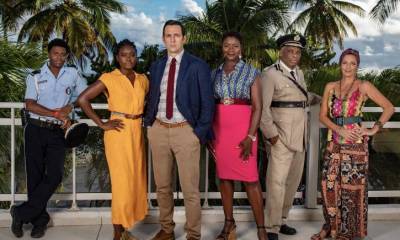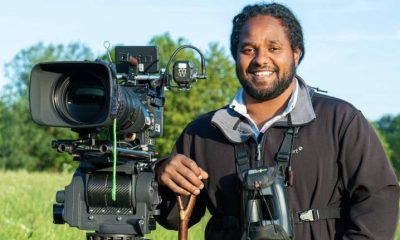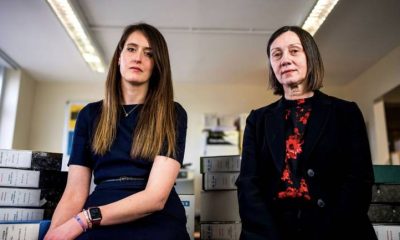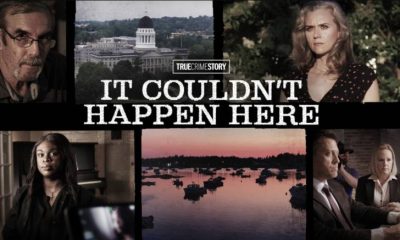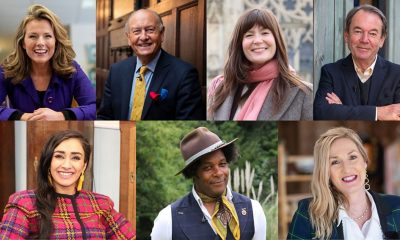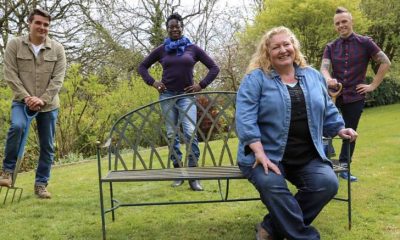Interviews
Ten Pound Poms Interviews: Faye Marsay
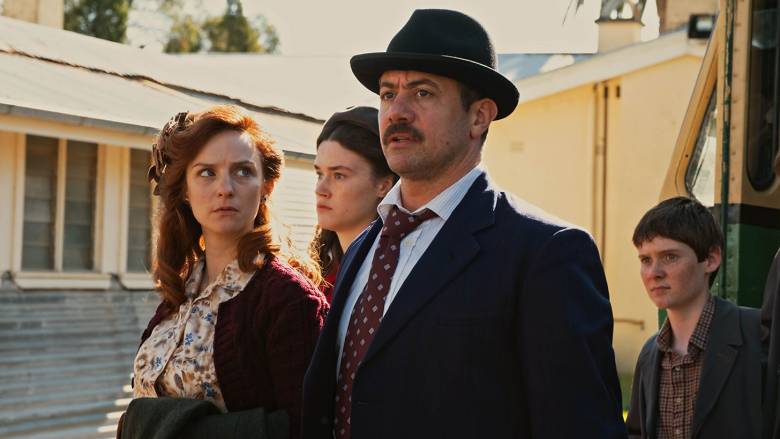
Ten Pound Poms Interviews: Faye Marsay
The new original drama series Ten Pound Poms was created by Danny Brocklehurst. The plot of the six-part series centres on a group of British people who, in 1956, flee the gloom of post-war Britain for a chance at a new life on the other side of the world.
Faye Marsay plays housewife Annie Roberts.
Who do you play?
Annie Roberts is a 1950s housewife in post-war Northern England, married to Terry. They have two teenage children, Pattie and Peter. Terry was a soldier and in a prisoner of war camp during World War II. We find out that he’s suffering from PTSD, so there’s a tension between the two of them. Annie sees an ad in the paper for a ten pound passage to Australia. She decides that maybe that’s the best thing for this family; to get them out of the situation, they need to find a new life. So she convinces Terry and the children to emigrate.
What was exciting for you about the project?
I was attracted to the show by Danny’s script. I’ve also worked with our exec producer Joel Wilson before and I really respect him so that was a big pull as well. And the history – the fact that I didn’t know much about the Ten Pound Poms scheme and how Australia was basically trying to repopulate after World War II. That and finding the character was different from what I’ve been doing recently – added to which it’s a period drama. It was too good to turn down.
Did you know much about the Ten Pound Pom scheme before you got the script?
We in Britain know that we have a link with Australia – the penal colonies and so on, but I hadn’t realised the scale of what they put together during the fifties, sixties and seventies. They encouraged other people to emigrate too such as the Canadians. And when they got to Australia it wasn’t necessarily what they were expecting. They were put into cramped hostels, work was hard to find and a lot of them were homesick. I think a quarter of the people who went there actually returned to the UK in the first two years, so a lot of families found it difficult to adjust.
Had you worked with Michelle and Warren before?
I hadn’t worked with Michelle and Warren before but I obviously knew their work. We immediately got on. There’s a commonality between us Northerners, a certain language that we speak which made us feel very comfortable around each other – added to which there were just us three British actors out there. Michelle is a beautiful, open, positive soul and a joy to be around, and similarly Warren. It’s been a real adventure working with both of them.
How did you find working in Australia?
The Australian actors were also amazing. They made us feel so comfortable and welcome – which was important as we were there for five months. The way the Aussies work is different from the Brits and meshing that together has been really interesting and cool. I so enjoyed being in Australia. It’s a beautiful country and the people are beautiful too. I live in East London which is gorgeous but the vast spaces in Australia and the lack of pollution make you feel, I don’t know, just more at ease with yourself. London is a bit more intense. So the vibe for me was a slowing down of the pace of life, I guess. The climate also definitely appeals – we Brits love the sun. But you’re dealing with lots of terrifying creatures too. I’m quite scared of snakes and spiders and creepy-crawlies.
However, what we experienced was just so far away from what they would have known in post-war Britain which was a damp, tough existence, still on rationing. It must have been a massive culture shock coming to Australia. I do miss it though – the fresh air, nature and the vibe which I really like being around.
What do you think audiences will feel when they watch the series?
I think audiences will feel a sense of nostalgia, and they’ll get an education about a period of history not many of us really know about. There are a lot of people who emigrated to Australia leaving family back in the UK, so there’s a link there. People will recognise themselves in the situations, family traits and phrases. It’s exciting.




